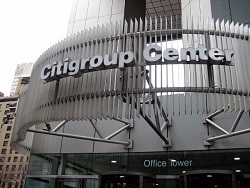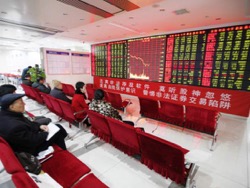
Citigroup once again gave grim economic forecasts. In the current version of the economists of the group talking about the high probability of global recession, the main reason is slower growth in the developed economies. Previously Citigroup have already talked about the growing risk of global recession, however, is motivated primarily by the slowdown of emerging economies.
The fragile state of the global economy, according to the current version, due to several key factors. First, it is a consistent slowdown in the Chinese economy coupled with an unstable currency policy of China. The main question here is to what extent the world market can withstand a break in the strong growth of the Chinese economy, to which he was accustomed to navigate. Secondly, the vulnerability of the world economy contributes to a high level of external debt in many countries. Third, the impact of regional and geopolitical instability.
Citigroup economists agree that, despite the increasing likelihood of global recession, it is not inevitable. But to prevent it, need to take global steps, which involve special financial policy in combination with financial incentives and structural reforms.
CNBC adds that Citigroup estimates significantly lower than the forecasts of the International monetary Fund (IMF). According to the calculations of Citigroup, the world economic growth this year is expected to be approximately 2,5%, whereas the IMF had predicted growth of 3.4%. However, last Wednesday the IMF warned that it was likely to adjust their forecasts to 2016
.CNBC also highlights the point that Citigroup was especially concerned about the growth of the U.S. economy. The instability of the American economy, according to experts, can lead to the fact that in terms of slowdown in Chinese economy have the global economy will not remain the fulcrum that the entire system can cope with immersion into recession. Even short-term recession in the US could trigger a global recession, the output from which will be slow.
The Wall Street Journal on this issue notes that in the U.S. labor market finally perked up in recent months, gave a good performance in terms of growth of salaries and reduction of unemployment. However, this progress may be offset pressures in other areas – particularly in the financial sector and in the manufacturing sector. Also on the U.S. economy can badly affect the low oil prices in combination with rising dollar. Taking into account these factors, the risk of a recession in the U.S. increases, although rate it as high prematurely.
This is not the first gloomy prognosis Citigroup for the last six months. In early September the media were discussing that predicted by the expert team the prospect of a global recession. The Economist then wrote that economists, especially analysts from investment banks, is not interested in unnecessarily to make bad predictions. First, to predict the global economic dynamics is difficult, because estimates are based on old data that may not conform to new scenarios. Secondly, it’s a career risk, because the investment environment is not bad predictions.
However, the group reported disappointing their expectations. Then they were based, primarily, on anticipated prospects of the Chinese economy and problems of other emerging markets. The model was that due to the slowdown of economic growth China will not be able to import products from other countries in the extent to which the economies of these countries used to export. This slowdown will feel even those countries that do not trade directly with China, because in this case they trade with countries that will likely depend on exporting their products to China.
Also last December, Citigroup has estimated the probability of a global recession in 65%, and in early February announced that the global economy is caught in a vicious circle, and this can lead to a further drop in oil prices and instability in the stock exchanges.








